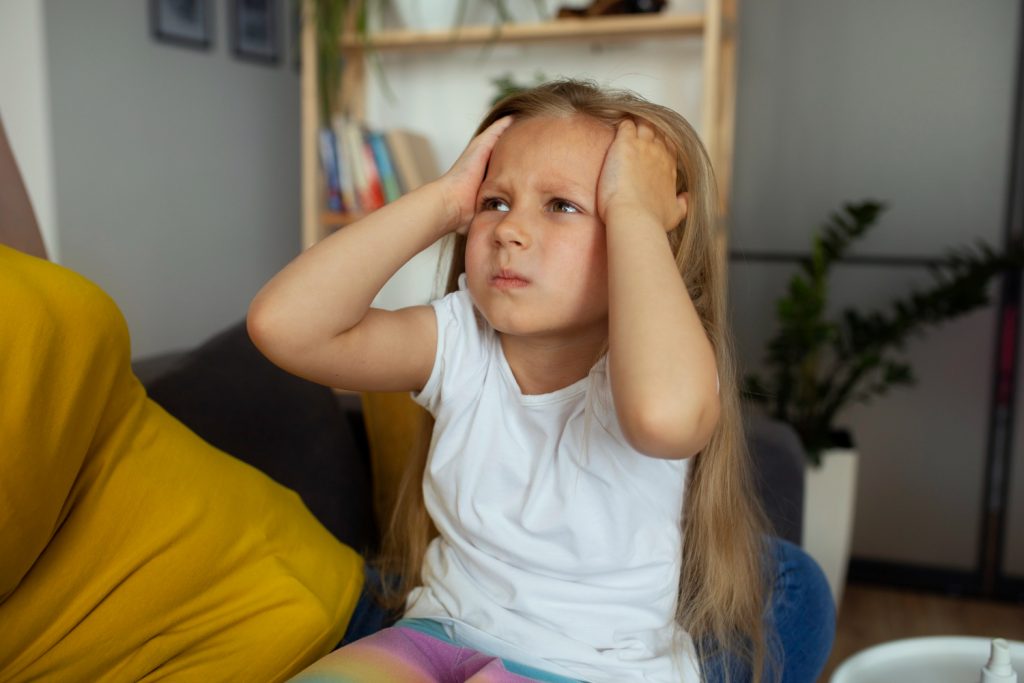Children with ADHD often struggle with more than just distraction and hyperactivity. One of the most misunderstood aspects of childhood ADHD is anger. When it shows up frequently or intensely, it can lead to conflict at home, difficulties at school, and emotional pain for the child and their family.
For parents, watching their child struggle with sudden meltdowns, frustration, or rejection can be heartbreaking and confusing. You may feel like you’re walking on eggshells or constantly bracing for the next emotional storm. Understanding the root of these behaviors is the first step toward healing for your child and your family.
Let’s take a deeper look at the connection between ADHD and anger in kids: where it comes from, what it looks like, and most importantly, how we can support children in managing it with compassion and care.
How ADHD and Anger Connect
At first glance, ADHD and anger might seem unrelated. But in reality, ADHD affects impulse control, emotional regulation, and frustration tolerance, all of which play a huge role in how a child expresses (or struggles to express) anger.
According to the CDC, about 6 million children in the U.S. have been diagnosed with ADHD. Among them, a significant percentage also experience co-occurring emotional regulation issues, including anger, mood swings, and difficulty calming down.
“When a child with ADHD gets angry, it often happens quickly and without warning. They’re not trying to misbehave their brain just isn’t giving them the pause they need to respond calmly.”
— Licensed Therapist, Lifeline Behavioral Health
That’s why ADHD and anger in kids are so commonly seen together. When a child lacks the internal brakes to slow down emotional reactions, anger can take over quickly, often before they even realize what’s happening.
Why Do Kids with ADHD Get Angry?
ADHD-related anger isn’t about defiance. It’s about dysregulation. Understanding this is the first step in making sense of the patterns we often see with ADHD and anger in kids.

Here are a few reasons children with ADHD may struggle with intense emotions like anger:
- Impulsivity: Kids with ADHD often act before thinking. That means when something upsets them, they may yell, hit, or storm off without realizing how big their reaction is.
- Frustration Sensitivity: Small challenges like a lost toy, a confusing homework question, can feel overwhelming. These kids often hit their frustration limit faster than others.
- Rejection Sensitivity: Many children with ADHD are emotionally sensitive to criticism or exclusion. This can lead to anger as a defense mechanism.
- Feeling Misunderstood: Constant redirection, correction, or punishment can make a child feel unheard or unwanted, feeding a cycle of resentment and explosive reactions.
As a parent, it’s easy to feel blamed or burned out, especially when nothing seems to “work.” But the truth is, ADHD and anger in kids isn’t a parenting failure. It’s a neurological challenge that calls for compassion, not criticism.
How Kids Experience Life with ADHD and Anger
Imagine being a child who is constantly told to “calm down,” “stop yelling,” or “be good”, but not being taught how. That’s the experience for many children dealing with ADHD and anger.
Kids who live with this daily struggle may:
- Feel isolated from peers due to their outbursts
- Struggle with low self-esteem from repeated negative feedback
- Experience disciplinary actions at school more often than their peers
- Become emotionally exhausted, even when they don’t fully understand why
The emotional weight of ADHD and anger in kids is often invisible to adults. But it deeply affects a child’s ability to form friendships, participate in school, and feel safe in their environment.
What ADHD and Anger Look Like in Children
Not every child with ADHD expresses anger the same way. Some common behaviors include:
- Sudden meltdowns or tantrums that seem disproportionate
- Aggression toward siblings, classmates, or adults
- Arguing frequently, even over minor issues
- Crying easily or often during stressful moments
- Difficulty calming down after getting upset
- Saying things like “I hate you!” or “I’m stupid!” during emotional episodes
These behaviors are often misinterpreted as disobedience. But in the context of ADHD and anger in kids, they are more accurate signs of emotional overload and neurological struggle.
Helping Kids with ADHD Manage Anger
The good news is that ADHD and anger in kids can be addressed. With the right tools and support, kids can learn to better regulate their emotions, express themselves more constructively, and gain a sense of emotional safety.
No parent is handed a guidebook for how to respond to daily outbursts or emotional shutdowns. However, with the right tools, support, and patience, families can learn to navigate these moments together with greater confidence and less chaos.
Our ADHD Treatment services use evidence-based therapy to help children build emotional regulation skills while supporting parents with practical tools for everyday life.
Here are some key approaches:
1. Understand the Triggers
Work with therapists to identify common anger triggers like transitions, sensory overload, or perceived unfairness and create plans to avoid or prepare for them.
2. Teach Emotional Vocabulary
Helping children name emotions like “frustrated,” “overwhelmed,” or “disappointed” can prevent those feelings from turning into rage.
3. Model Calm Responses
Adults who stay calm during meltdowns provide the emotional regulation children need. This teaches kids that intense feelings can be handled without yelling or hitting.
4. Use Predictable Routines
Consistency gives children with ADHD a sense of stability. When they know what to expect, they’re less likely to be caught off guard.
5. Behavioral Therapy and Parent Coaching
Evidence-based therapies like Cognitive Behavioral Therapy (CBT) and Parent-Child Interaction Therapy (PCIT) can equip both kids and caregivers with strategies to manage ADHD and anger more effectively.
A Path Forward with Support
When kids with ADHD and anger are seen, heard, and supported they thrive. Every child deserves the opportunity to understand their emotions and learn how to manage them in healthy, age-appropriate ways.
It’s not just kids who carry the weight of ADHD and anger in kids, it’s parents, too. If you’re feeling discouraged, overwhelmed, or unsure where to turn, know that you’re not alone. Lifeline Behavioral Health is here to support you and your child with strategies that help the whole family feel more connected, stable, and understood.
Contact us today to start a conversation.


